Ludwig Wittgenstein – How we speak
How can we tell what is real and what isn’t? Ludwig Wittgenstein said that it was all about language. If we want to understand what we can know, then we must look at how language works.
So he wrote two very different books on how we use language to think.
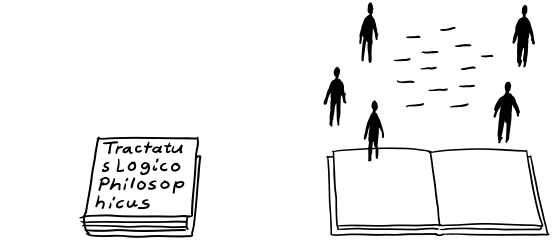
1. Tractatus Logico-Philosophicus
At first sight the Tractatus is as terrifying as its title. But the core idea is quite simple: Our sentences are pictures of the world.
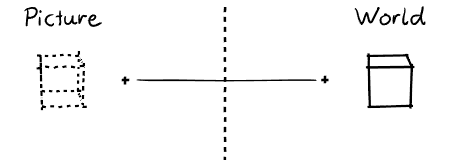
Whenever we talk we make “pictures” of how things are. Those pictures are the words and sentences that we use. There is a fixed connection between each word and the object that it refers to. For instance the word “table” refers to that thing in front of me right now.
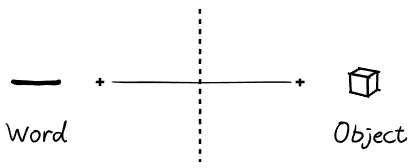
But those words alone don’t mean anything unless they are composed to sentences, or better yet: to statements. A statement is a sentence that can either be true or false. For instance we can say: “This table is made of wood.”

If the table is actually made of wood then our statement is true. Our statement matches a “state of affairs”, it is a fact. Otherwise it is false — or nonsense.
To find out whether a statement is true or not, we have to look. But how can we find out whether a sentence is sound or nonsense? We use logic.

Logic includes a number of rules to “calculate” whether what we say has a meaningful structure.
We won’t get into the details of logic here. For now all we need to know is that whenever we use sentences that are true or false we can use logic to check whether they are sound.
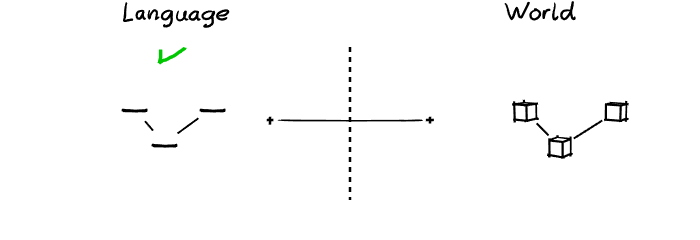
This picture theory of knowledge in the Tractatus is a guiding principle for any empirical science. In a way we can see this book as an attempt to create an extremely “pure” philosophy. The idea is to only use sentences that are true or false and can thus be examined properly beyond doubt.
But there is a catch.
Since we only use descriptive sentences that can be true or false and accept only arguments that follow a logical structure, we must leave a lot of things out:
“Whereof one cannot speak thereof one must be silent”
Ludwig Wittgenstein

“What should I do with my life?”, “Should I get a pet pig?”, “Why are squirrels so beautiful?”, and other important questions can not be addressed with this kind of strict logic. Religion, metaphysics, or how much you love someone cannot be expressed in objective logical terms. So we shouldn’t talk about these things at all.
That includes philosophical works like the Tractatus itself! Wittgenstein concluded that his book must be nonsense.
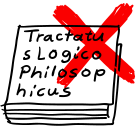
What?
Yes. But here comes part II:
2. Philosophical Investigations
In the Philosophical Investigations Ludwig Wittgenstein takes a different approach to language.
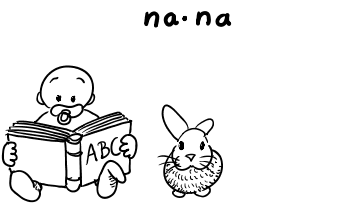
First of all he states that we can not learn a language through definitions and rules.
Instead, we learn it by doing: We talk to other people and they correct us.
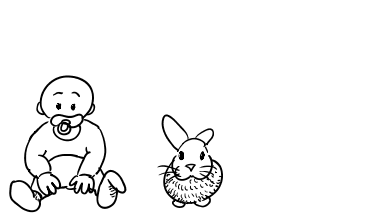
Wittgenstein compares words to figures in a chess game. You might know the rules of the game – that is how you could move the chess figure. But that does not mean that you are an excellent player.
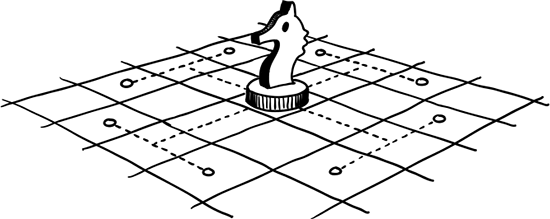
To become good at the game you have to practise it.

The same is true for language. Just because you know the definitions of words does not mean that you know a language. We learn how to speak by playing “language games”.
For instance we should understand that “I want to buy an apple” means something very different depending whether you are in a computer store or at a farmers’ market. We can take part in language games only when we know what the words mean in context.
In order to learn the meanings and rules we have to try them out with other people.
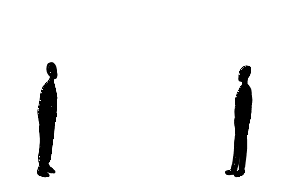
But these rules are neither precise nor are they fixed. They hint at how we might use words, so it is hard to label them as “rules”. Wittgenstein compares them to signposts that give you directions of how you could use the words.

As we go along and follow the rules of language we constantly modify those rules. Language keeps changing through its use by people.
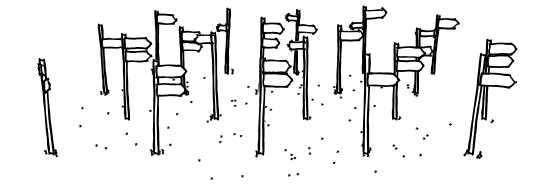
In the Philosophical Investigations language does not have a fixed logical structure as previously suggested in the Tractatus. It is an adaptive system made by many people, and we can only learn it if we participate in the game.
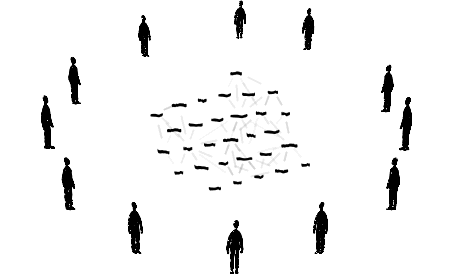
Wow! This is EXACTLY what our computers do!
First of all, our programming languages are based on pure logic. They consist mainly of statements that can be true or false. They are the descendants of the logical tradition of Aristotle, Frege, Russell, Wittgenstein and others. The inherent restriction to logic explains in part why — when I am programming — everything that does not fit the rules of logic seems to be pointless. Including most of human interaction.
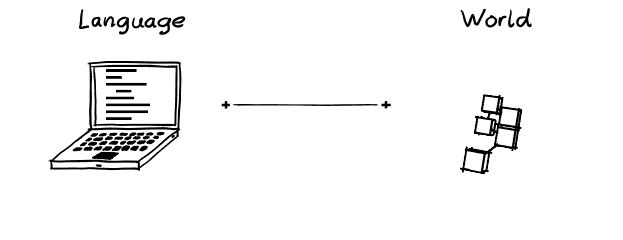
So let’s keep in mind that our programming languages only use logical structures to interact with the world. This means that there is a lot of which they “must be silent”.
But what is even more fascinating: It has always been notoriously difficult for programmers to handle certain problems such as writing a good language translation software. To add more and more language rules didn’t really help much. A real breakthrough for computer scientists was to come up with software that participates and learns.
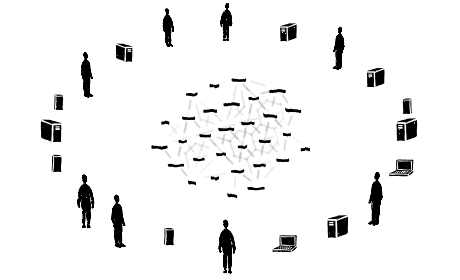
In fact, much of what we hide behind the mysterious term “Artificial Intelligence” is software that learns by doing. For instance every time you enter a search query and click on the results (or not) you give feedback to a piece of software. You teach it how to play your language game.
So we made a shift from fixed rules and references to active learning just like Ludwig Wittgenstein did in his two masterpieces.
If you want to dig deeper
- Ludwig Wittgenstein, Tractatus Logico-Philosophicus
- Ludwig Wittgenstein, Philosophical Investigations
- A. C. Grayling, Wittgenstein: A Very Short Introduction
- A. Nordmann, Wittgenstein’s Tractatus
- D. G. Stern, Wittgenstein’s Philosophical Investigations
- C. M. Bishop, Pattern Recognition and Machine Learning
Before you go
If you enjoyed this article, then subscribe to my mailing list to receive more animated stories!
I love your writing~
Thank you, I enjoy your work very much!
This is full of insight, enlightening, the thoughts are masterfully translated into pictures, it’s scintillatingly witty (I had to look this up 🙂 ) and an inspiration. Thank you!
Marvelous article!!
Amazing!
Wow!!!! A new world! A new approach into something I’ve been dealing with for years!!absolutely witty!!!
Anyway!! I must read it again!!